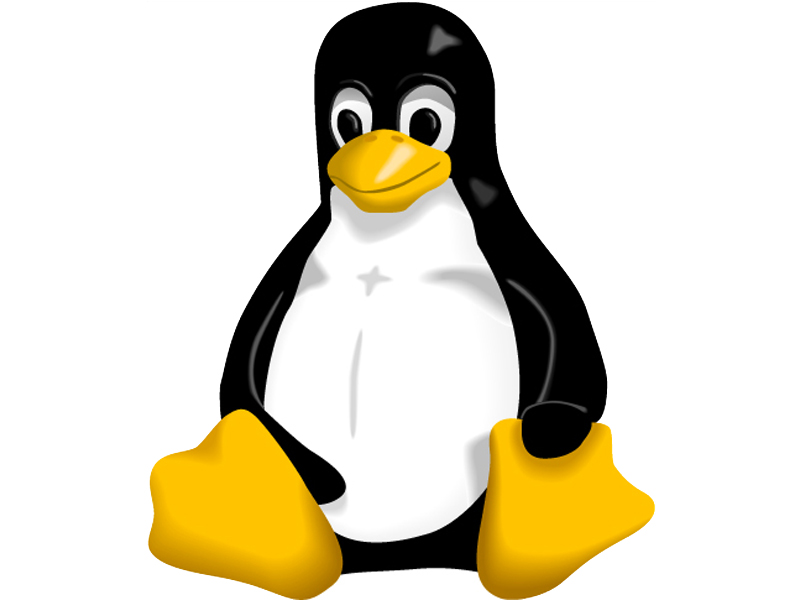Linux needs rebranding

Thinking back, I was 10 years old when I saw my first real home computer. It was a dark winter's evening, sometime in the early '80s, and in the corner of a friend's bedroom sat a small CRT television screen, complete with scrolling bands of interference and a 50hz buzz.
Underneath the screen was the totally underwhelming body of a Sinclair ZX80, but this didn't interest me. What did interest me was the flashing grey cursor on the screen.
I was oblivious of the limitations of storage, CPU speed, memory and the 22 commands offered by the BASIC interpreter. In my mind, that cursor represented a portal to a world of infinite possibilities. It was the blue pill. It was the bottle labelled 'Drink me' and the cake marked 'Eat me', and my evenings from that point on were destroyed.
I've never truly lost that sense of wonder from computers, and it was this wonder that eventually led me to Linux. It's the modularity of the computer that gets the imagination running, and I think many software developers from the '80s and '90s, many of whom have contributed to the free software projects that got us to this point, feel the same way.
Readjustment
But Linux is going through a kind of dot-com readjustment at the moment. We're at the tide mark between what's become old and predictable, and a brave new continent.
Nokia, which bought into the free software dream when it adopted Trolltech, has had to backtrack on its Meego plans and form an alliance with Microsoft to survive.
Sign up for breaking news, reviews, opinion, top tech deals, and more.
Canonical has waded into the controversial mire by attempting to change the affiliate code in the Banshee music player - a move that would take money from the Gnome Foundation and place it in the hands of the business behind Canonical.
And Novell, since its purchase by Attachmate, is still trying to find its position in a world where the Linux desktop is being increasingly bypassed for Linux phones and tablets that all neglect to mention that they're running Linux.
The reason for this change is that we're currently in the middle of a shift between the first and second generation of technophiles. That home computer background of the '80s means I'm from the old guard. Something, inevitably, has come along to make these computers that I play with seem static, expensive, limited, outmoded and outdated. That's the internet.
Rather than a cursor of infinite possibilities, it's now a URL that can take you to places science fiction couldn't have guessed at in 1982. Instead of nights spent tapping words into the cursor to make the machine perform magic, the cutting edge of development can now often be found online, running on servers, or as nuggets of code running on smart phones and tablets.
It's in the data
There's a new generation of 10-year-olds looking in wonder at the potential in just the same way I did at the ZX80. But the magic isn't in the software, it's in the data, and this data has inspired social and political revolution.
This has helped to make Apple such a success, and has pushed the Linux desktop - and Windows to an extent - onto the back burner. This is what Steve Jobs calls the 'Post PC' world, and it's a different kind of environment to the one we imagined for ourselves in 1999.
The Post PC world of the future is likely to be different again. But this doesn't mean free software and Linux need to die. Linux just needs rebranding. It should no longer expect to be the operating system it never truly was. It's just the kernel, after all.
Instead, Linux should become the platform, the servers and the free software that a new breed of developers will use to power the next technological revolution. And it already is.
Google shouldn't be afraid of mentioning Linux on its hardware - it needs to be used to show that the platform is the opposite of Apple's closed playground. Nokia shouldn't be abandoning MeeGo for a Windows platform that's unlikely to accept GPLv3 licensed software just because it's failed so far. It should be repositioning itself as an open platform with a clear open platform brand.
This isn't about marking hardware products with 'Linux inside' just because there happens to be some minor version of the kernel running on an ARM processor.
We need Linux on the outside. Only then can we inspire a new generation of developers and computer scientists to spring from the 10-year-olds who can see the potential in what they hold, rather than a series of ring-fenced playgrounds, licensing minefields and paid-entry development environments. And that's a legacy worth fighting for.